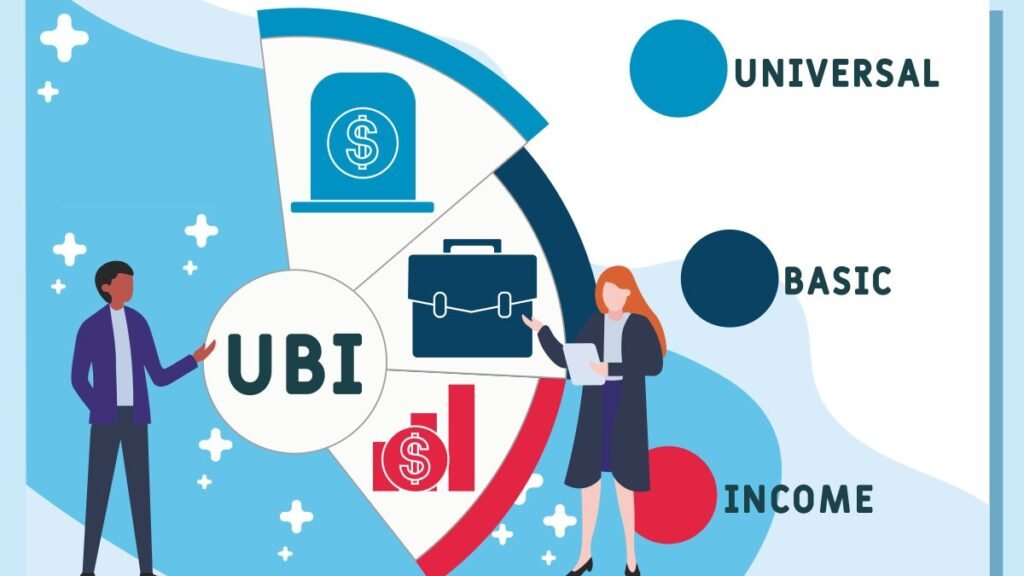Universal Basic Income (UBI) has been a topic of considerable debate worldwide, particularly in the context of tax planning and preparation. For those of us in Colorado and beyond, understanding UBI is crucial as it could significantly impact our financial planning and tax strategies.
In this article, we’ll delve into what UBI is, its pros and cons, and how it might affect tax planning and preparation.
What is Universal Basic Income?
Universal Basic Income (UBI) is a socioeconomic policy in which a government provides all its citizens with a regular, unconditional payment of money, irrespective of their financial status or employment situation. This payment is intended to be sufficient to cover basic living expenses and is granted without any means-testing or work requirements. The primary aims of UBI are to alleviate poverty, decrease economic inequality, streamline the existing welfare systems, and offer a safety net that ensures financial stability for everyone. By providing a guaranteed income, UBI seeks to empower individuals with greater economic security, promote social justice, and encourage entrepreneurial and creative endeavors by reducing the financial pressures of daily life.
Universal Basic Income Pros and Cons
Pros of Universal Basic Income
- Poverty Reduction: UBI aims to alleviate poverty by providing everyone with a basic level of income, ensuring that all citizens can meet their basic needs.
- Simplification of Welfare: By replacing multiple welfare programs with a single UBI payment, administrative costs and complexities can be reduced.
- Economic Stimulus: With more disposable income, citizens are likely to spend more, potentially boosting the economy.
- Encourages Entrepreneurship: With a guaranteed income, individuals might be more willing to take risks and start new businesses.
Cons of Universal Basic Income
- High Cost: Funding UBI could require significant tax increases or reallocation of government spending, which might be challenging to sustain.
- Inflation: There’s a risk that increased demand for goods and services could lead to inflation, diminishing the purchasing power of the UBI.
- Work Disincentive: Critics argue that UBI might discourage people from working, though evidence on this is mixed.
- Implementation Challenges: Transitioning to a UBI system would be complex and would require careful planning and execution.
How UBI Could Impact Tax Planning and Preparation
From a tax planning and preparation standpoint, the implementation of Universal Basic Income (UBI) introduces several key considerations that could significantly impact individuals’ financial strategies:
Changes in Taxable Income
Under a UBI system, the regular payments received by individuals would be classified as taxable income. This change means that taxpayers will need to adjust their tax planning strategies to account for this additional source of income. For residents of Colorado and other states, this could lead to a shift in overall tax liabilities. Individuals may find their taxable income increasing, potentially pushing them into higher tax brackets or altering their effective tax rates. This necessitates careful recalibration of tax withholdings and estimated payments to avoid surprises at tax time.
Adjustments to Tax Brackets
The integration of UBI into the tax system might prompt a reevaluation and potential restructuring of tax brackets. To maintain a fair and equitable system, it may be necessary to adjust the income thresholds that define each bracket. Higher earners might face increased tax rates to help fund the UBI program, which could result in a higher overall tax burden for those in the upper-income brackets. Taxpayers will need to stay informed about any changes in tax brackets and factor these adjustments into their long-term tax planning strategies to optimize their financial outcomes.
Revisions to Deductions and Credits
The introduction of UBI could lead to revisions or even elimination of existing tax deductions and credits. Tax benefits that were previously available might be adjusted to accommodate the new income distribution model introduced by UBI. For example, certain income-based deductions or credits might be reduced or restructured to ensure fairness in the tax system. Taxpayers will need to reassess their eligibility for various tax benefits and update their tax preparation practices to align with these changes. This could involve revisiting retirement contributions, education credits, and other deductions to ensure they are optimizing their tax positions under the new system.
Overall, the implementation of UBI presents a significant shift in the financial landscape, necessitating careful planning and adjustment in tax strategies. Staying informed about changes in tax laws and consulting with tax professionals will be crucial for effectively managing the impact of UBI on individual tax obligations.
Universal Basic Income Programs Around the World
Several countries have experimented with or implemented UBI programs, each with unique approaches and outcomes. Some notable examples include:
Finland – Finland conducted a two-year UBI experiment from 2017 to 2018, providing a monthly payment to 2,000 unemployed individuals. The results showed improved well-being and reduced stress levels among participants but had little impact on employment rates.
Canada – In Ontario, Canada, a UBI pilot project ran from 2017 to 2019, offering payments to low-income individuals. The project aimed to assess the impact on health, education, and labor market participation. However, it was terminated early due to political changes.
United States – In the United States, various cities have piloted UBI programs. For instance, Stockton, California, provided $500 monthly to 125 residents from 2019 to 2021. The results indicated increased financial stability and improved mental health among recipients.
Universal Basic Income presents both opportunities and challenges, particularly in the realm of tax planning and preparation. For Colorado residents and others, staying informed about UBI’s potential impacts is crucial for effective financial management.
In conclusion, while Universal Basic Income offers promising benefits, it also comes with significant challenges. Whether you’re in Colorado or elsewhere, staying updated on UBI developments and their tax implications will be essential. By understanding UBI’s potential impacts, you can better prepare for the future and make informed decisions about your financial and tax planning strategies.



